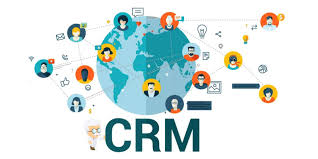In mortgage lending, referrals play a role in attracting new clients. An effective system for handling mortgage referrals can greatly influence the success and expansion of a lending enterprise. This is where Customer Relationship Management (CRM) software steps in.
What is CRM?
Customer Relationship Management (CRM) is a technology-driven tool that empowers businesses to oversee and analyze customer interactions, streamline operations, and enhance customer satisfaction. CRM software consolidates customer information, automates sales procedures, manages communication platforms, and offers insights to enhance efficiency and revenue generation.
Enhancing Mortgage Referral Processes
A key advantage of CRM software is its capacity to streamline the management of mortgage referrals. By maintaining a database with details on referral sources, loan officers can effectively monitor leads and evaluate each referral’s potential. Utilizing a mortgage referral guide within the CRM further enhances this process, providing structured and detailed information to maximize each referral’s effectiveness.
Monitoring Referral Origins
CRM software simplifies the task of tracking sources. Through the implementation of a CRM platform, lenders can access real-time data on the origins of their mortgage referrals. This insightful data enables them to prioritize collaborations or marketing strategies with high-performing sources while minimizing time spent on less lucrative avenues.
Automating Lead Generation
Swiftly capturing leads is essential to staying relevant. A reliable CRM system seamlessly collects information from sources such as websites and landing pages. These gathered leads are then automatically integrated into the CRM platform to ensure no potential opportunities are missed.
Efficient Data Management and Follow-Up
Handling client data can be daunting without a system in place. CRM software organizes client details in a user-friendly manner, enabling loan officers to monitor information like contact preferences and loan needs. Moreover, automated follow-up functionalities empower mortgage professionals to nurture client relationships efficiently.
Improving Communication Channels
Smooth communication is crucial in converting mortgage referrals into customers. The CRM software simplifies communication by offering a hub for all client interactions. Loan officers can respond to phone calls, emails, and messages within the CRM system, facilitating personalized service delivery and prompt responses.
Insights for Enhancements
Beyond managing mortgage referrals, CRM software provides insights for refining processes and procedures. The enhanced reporting features empower lenders to spot patterns and uncover areas for improvement, making informed decisions that foster business growth.
Examining Conversion Rates
Understanding conversion rates is crucial for refining sales strategies. Utilizing CRM software enables lenders to monitor and evaluate conversion rates at every stage of the mortgage referral process, from capturing leads to closing loans. Insights derived from these analyses assist lenders in optimizing their sales approaches and efficiently allocating resources.
Spotting Referral Trends
By analyzing data in the CRM system, lenders can uncover trends that might not have been obvious otherwise. This data helps answer questions such as which referral sources yield high-quality leads or whether specific campaigns outperform others. Armed with this information, lenders can make informed decisions to improve the effectiveness of their programs.
Identifying Operational Inefficiencies
CRM software aids in pinpointing bottlenecks or inefficiencies in day-to-day operations. Lenders can streamline operations and minimize wasted time and effort by identifying areas where workflows could be enhanced or processes automated. Improved operational efficiency results in faster and better response times for clients and an efficient use of resources.
Evaluating Referral Source Performance
Another key aspect of managing mortgage referrals is evaluating the performance of sources. CRM software gives lenders the tools they need to evaluate sources’ profitability and efficiency.
Monitoring Referral Returns
With CRM systems, lenders can monitor the Return on Investment (ROI) from their channels. By assigning tracking codes or IDs to each source, CRM software produces reports on successful conversions and revenue generated by each channel. This information helps pinpoint which sources offer the best ROI, enabling lenders to allocate resources and focus more on productive partnerships.
Wrap up
In today’s competitive lending landscape, managing mortgage referrals is crucial for success. Implementing a CRM system allows lenders to streamline lead management, enhance client communication, gain insights through analytics, and boost efficiency. By adopting CRM technology tailored for the mortgage sector, lending firms can build client relationships and expand their referral network even further.






